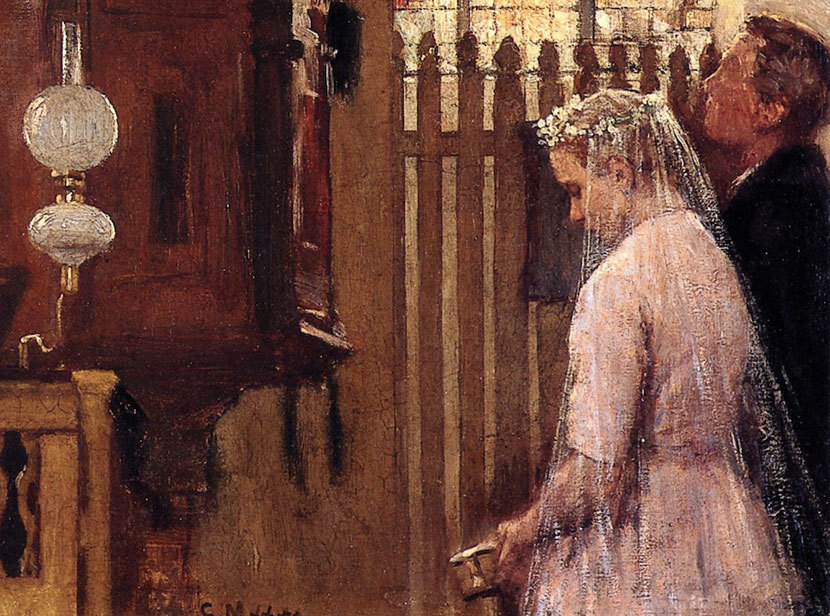Charles W. Chesnutt (1858–1932)
From Charles W. Chesnutt: Stories, Novels, & Essays

Weekend reading:
Charles W. Chesnutt is widely considered to have been first major black American novelist. He was certainly the first to have his fiction regularly published by national magazines, particularly The Atlantic Monthly, where his stories began appearing in 1887.
His short fiction was of two types. The earliest tales, featuring the former slave Uncle Julius as narrator, were influenced by Southern black folklore and were admired for their use of dialect; a number of them appeared in the 1899 collection The Conjure Woman. In the late 1890s he began submitting a different kind of story, featuring middle-class African Americans of mixed-race ancestry and (as the Encyclopedia of Southern Culture puts it) ranging “over a broader area of southern and northern racial experience than any previous writer on black American life had attempted.”
After the turn of the century, Chesnutt found it increasingly unlikely to support his family on a writer’s income. Plus, as tastes changed, more of his stories were rejected by publishers. One of the unpublished stories, “White Weeds,” is in many ways unlike anything he’d written before; in tone and plotting it resembles a crime mystery or a Gothic tale. This remarkable story, about a white couple whose marriage is destroyed by an unsubstantiated rumor and an unhealthy obsession, was recovered from among his papers and first published in 1974, and we present it as our Story of the Week selection.



